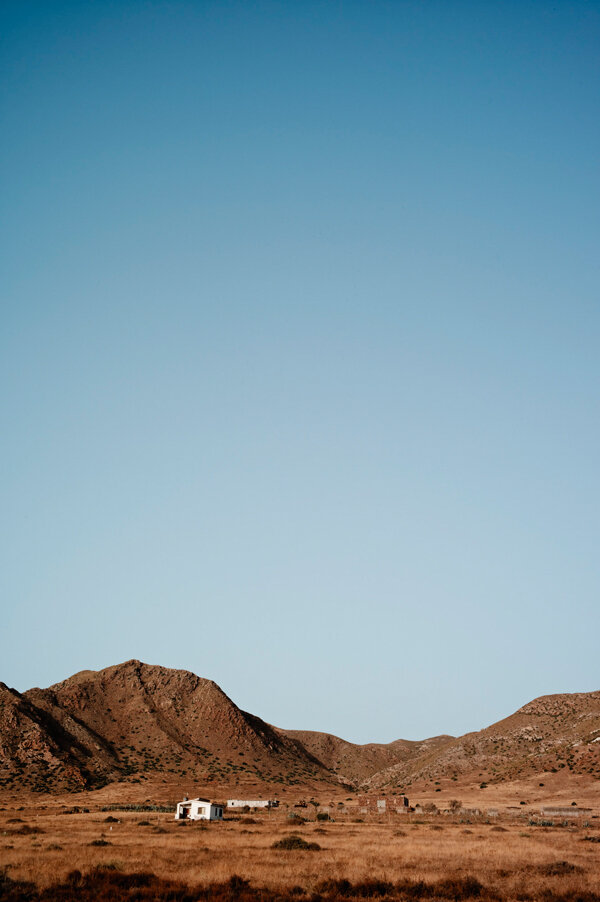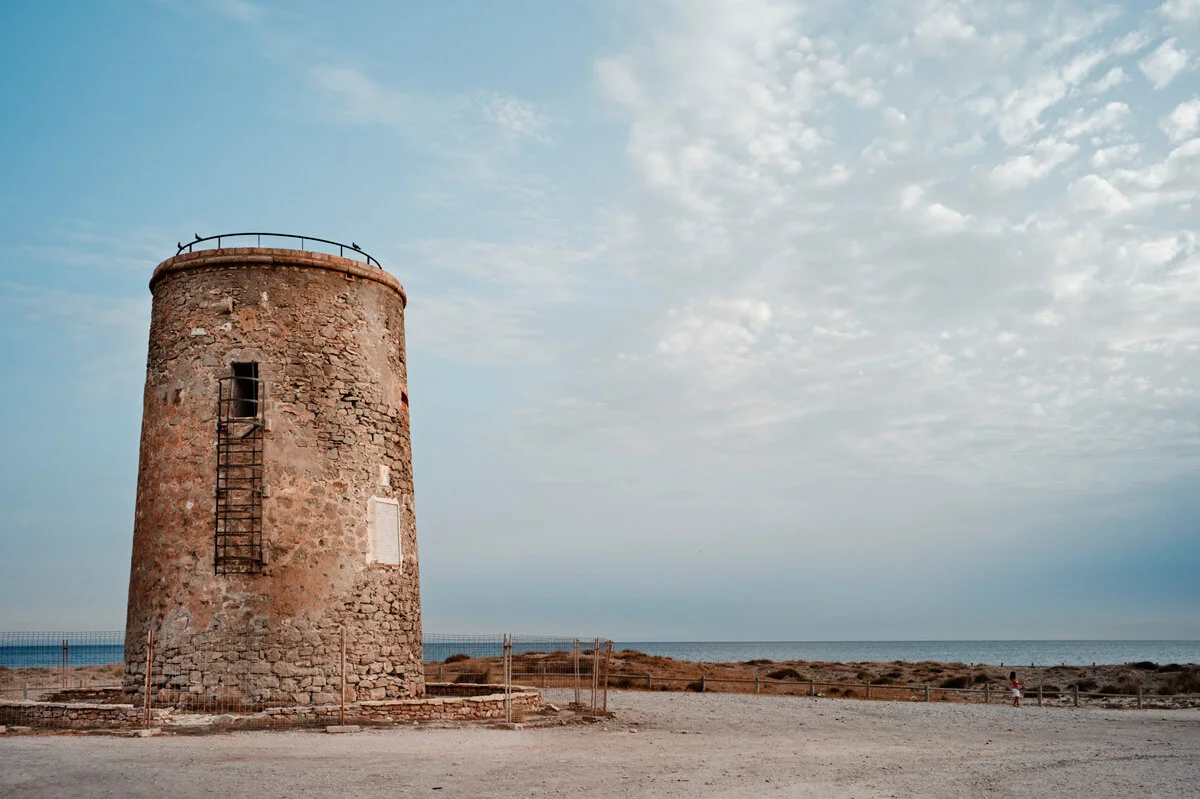Almeria. Words and images by Jonathan Camí. Published in Escape
Words and images by Jonathan Camí.
Holiday memories: The secret beach from my childhood.
My childhood memories are filled with little paradises, always vibrant with nature, always empty of people.
When I was a child, we used to travel to Almeria, on the southeast coast of Spain, for a few weeks every summer.
Our family house was not far from the town, less than one hour by car, near the entrance of Cabo de Gata’s National Park. Back in those days it was one of the most remote and deserted places in Spain, and the driest place in Europe.
At the end of the bitumen road, just before the lighthouse, a left turn led down a narrow dirt track, an ancient trail that wound around the lunar landscape, perched above the wild coastline of the Mediterranean Sea. Our venerable Renault 12 station wagon would take two hours to arrive to Los Albaricoques, the next town in the desert. In that time we wouldn’t see anything more than rocks, sand and sea, with a few odd flowering Agave cacti here and there.
Los Albaricoques (or “The Apricots”, funny name for a town), was no more than a ranch and four houses planted in the desert. Sergio Leone used to film spaghetti westerns here, starring Clint Eastwood, but The Good, the Bad and the Ugly wasn’t the kind of movie my family enjoyed, so on most occasions, we avoided the village in favour of a trip to the beach.
I particularly remember a tiny cove we used to stop by, just a patch of sand not bigger than an ordinary backyard, surrounded by volcanic rock formations, sharp as knifes, overlooking the rough sea, crowded with seagulls and ocean fauna. My dad would park the rickety Renault on a curve of the road and make us walk half an hour down a dusty and slippery cliff, wearing only our swimmers and jelly shoes. After the long drive, we’d be overexcited, and it was very difficult for him to calm us down. He wanted to make sure we didn’t drop the indispensable items – for a day at the beach, the fishing gear, towels and empty buckets.
On that tiny patch of sand we would remove our sandals, feel the white soft sand between our toes and set up camp while my parents would rest on a rock and throw the fishing line into the sea.
My sisters and I loved to play and swim in rock pools, chase crabs and octopuses, have fun and be wild, but we always felt a shadow hovering over our hearts, as we kept an eye on the cliff top, afraid that someone’s head might pop up.
In the unlikely scenario that someone would look down at our little paradise, and seek to share it, my father would shout ‘intruder’!
Ah … the dreaded word … That was always the end of the fun. We would have to quickly pack the fishing gear and the buckets, the towels and the innocent victims of our sea foraging, and leave.
Climbing up the cliff, wet and sunburnt, with pebbles in our jelly shoes, was torture. Then piling into the station wagon, hot as an oven, its upholstery so scorching that it would peel our skin off if we didn’t sit on our wet towels.
We would cry and beg for a stop at one of the wide pristine beaches next to the salinas (open air saltworks), on the way back home. Here we could swim safely, jump the waves and enjoy the ocean without wearing those horrible jelly sandals. But my dad, always true to his principles, would refuse to stop if he saw another human figure on the horizon.
A few years ago, I took my Australian partner to one of the coves that is fondest in my memory.
The national park is not remote anymore – all tamed for the tourists. Asphalt has replaced the dirt road, now wide and easy to drive.
We were there in the early northern summer, around June, enjoying a few days in my mother’s land. We left our rental in one of the designated parking areas and walked down the cliff towards the beach, along a newly built path with carefully constructed steps and a handrail: perfectly safe.
It was a nice day, warm, sunny, and it seemed like a good idea to enjoy the ocean. We weren’t prepared, so we decided to be one with nature, wearing just our skin as a swimsuit. I assured my partner that we’d be safe. It wasn’t peak season – still late spring, really. There’d be nobody there.
She wasn’t sure about the whole nude experience, but the tranquillity and pure, savage beauty of the surrounds, beguiled her. She decided to trust me and feel the sand and the sea in a different way from what she was used to.
Needless to say that while we were swimming, an entire Spanish family showed up. Father, mother, two loud little boys and a small and wrinkled old lady, fully dressed in black, her white hair covered with a scarf, descended upon our cove, assembling their umbrella, deck chairs, esky and barbecue, right beside our towels.
With the Spaniards in sight, the shy Australian persona rose inside my partner, and she decided she’d sooner turn into a fish than emerge naked from the sea.
Since I’d being guilty of misleading her into a shameless position, my duty was to show myself nude to the annoying little kids, the laughing father and the embarrassed mother.
Being used to going to naturalist beaches, that was not a problem. But a touch of shame from that day still haunts me, years later. The image of the old black-clad lady staring at me while compulsively doing the sign of the cross and murmuring a psalm has stayed in my mind.
That day I realised, maybe too late, that amenities bring people, and as people appear, those childhood paradises disappear and become just another regular place, another spot that everybody knows, another hashtag in an Instagram post.
I really miss my dad. In his constant search for empty places he filled my childhood with those little paradises, where we were free and happy, one with nature.




